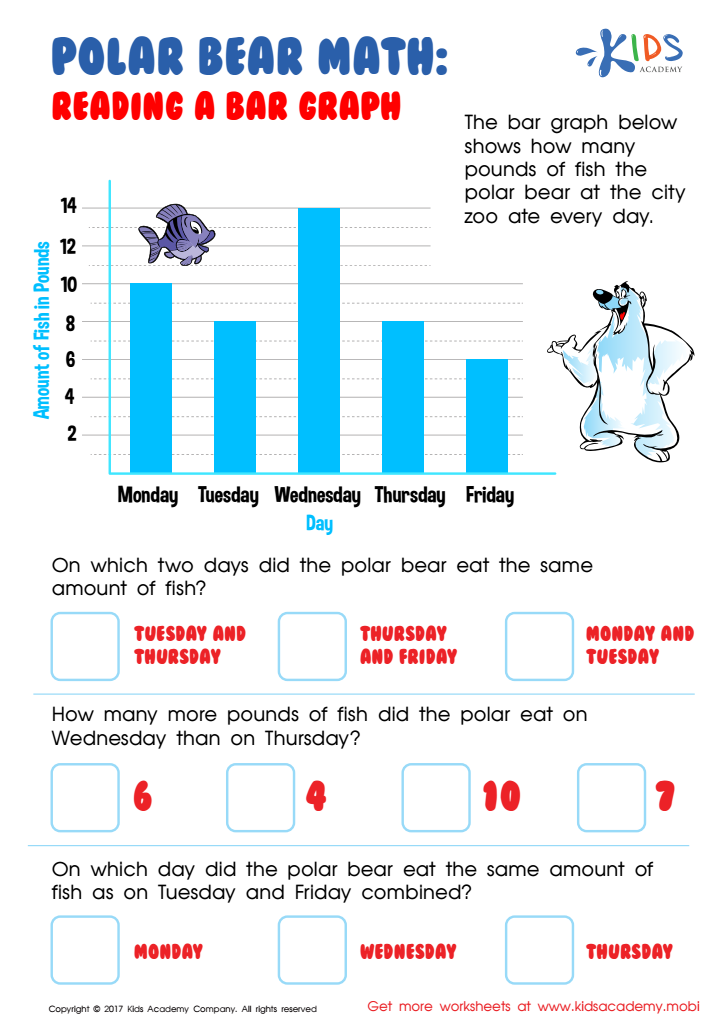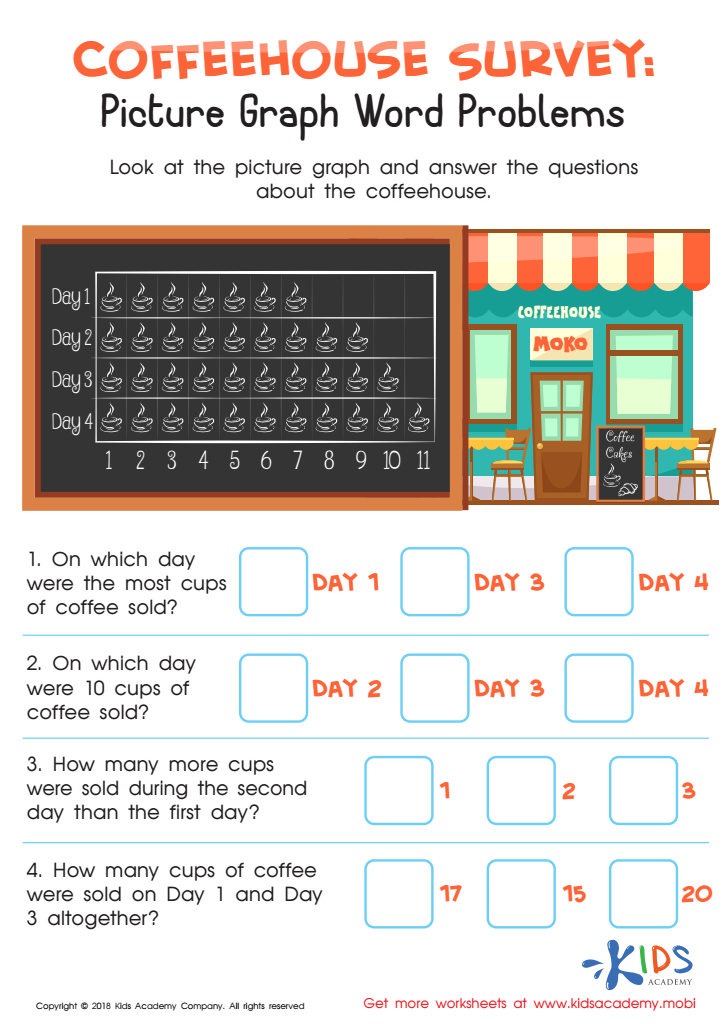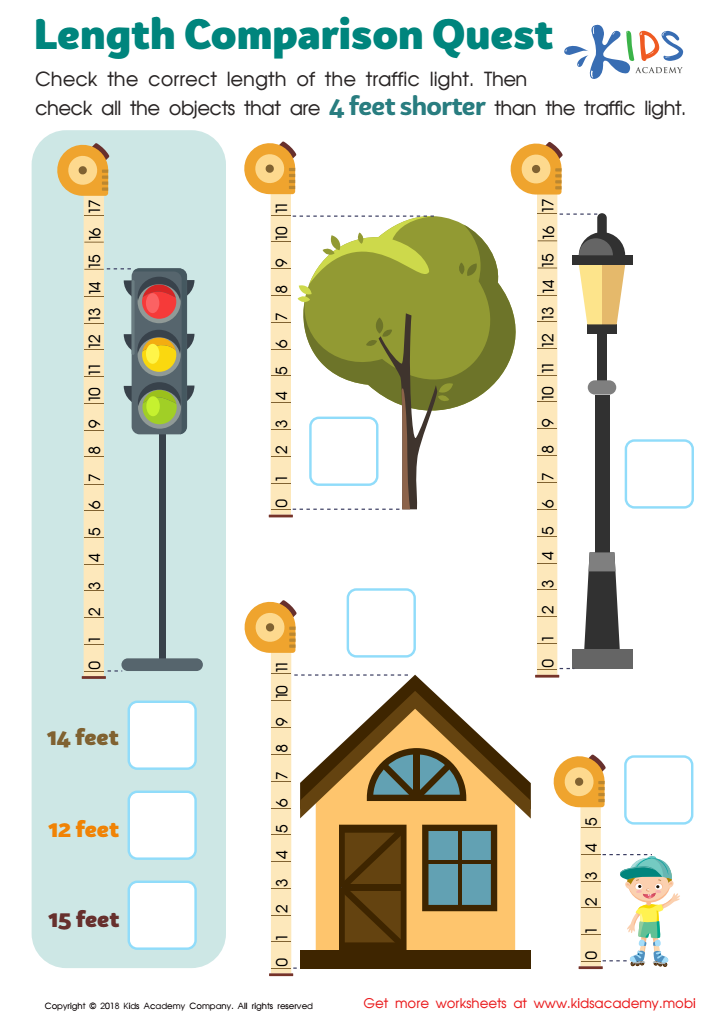Critical Thinking Measurement Worksheets for Ages 8-9
3 filtered results
-
From - To
Explore our engaging "Critical Thinking Measurement Worksheets" designed for children aged 8-9! These worksheets focus on enhancing critical thinking skills through fun, interactive measurement activities. Kids will tackle real-world problems, analyze data, and make informed decisions as they work through diverse tasks involving estimation, comparisons, and scale interpretations. Each worksheet encourages independent thought while adapting to various learning styles, ensuring every child thrives. Perfect for classroom use or at-home practice, our resources help develop essential thinking skills that are vital for academic success. Start nurturing your child's analytical abilities today with our thoughtfully crafted measurement worksheets!


Reading Bar Graph Worksheet


Coffeehouse Survey: Picture Graph Word Problems Worksheet


Length Comparison Quest Worksheet
Parents and teachers should prioritize critical thinking measurement for ages 8-9 because this is a pivotal developmental stage for cognitive skills. At this age, children are evolving from concrete operational thinkers to more abstract processors, making it essential to cultivate and assess their critical thinking abilities. This can enhance problem-solving, analytical skills, and decision-making, providing a foundation for lifelong learning.
Measuring critical thinking helps identify strengths and weaknesses in a child’s reasoning abilities, enabling tailored interventions to support their growth. It encourages a mindset that values inquiry, creativity, and adaptability—skills increasingly vital in the modern world.
Furthermore, integrating critical thinking into the curriculum fosters both academic success and social-emotional development. Children learn to evaluate evidence, appreciate diverse perspectives, and collaborate effectively with peers. This not only nurtures independent thinkers but also cultivates responsible citizens who can analyze complex issues and contribute positively to society.
Ultimately, by focusing on critical thinking measurement at this young age, parents and teachers ensure children are equipped with the essential tools to navigate the challenges of their future educational careers and the complexities of the world beyond.
 Assign to My Students
Assign to My Students
















